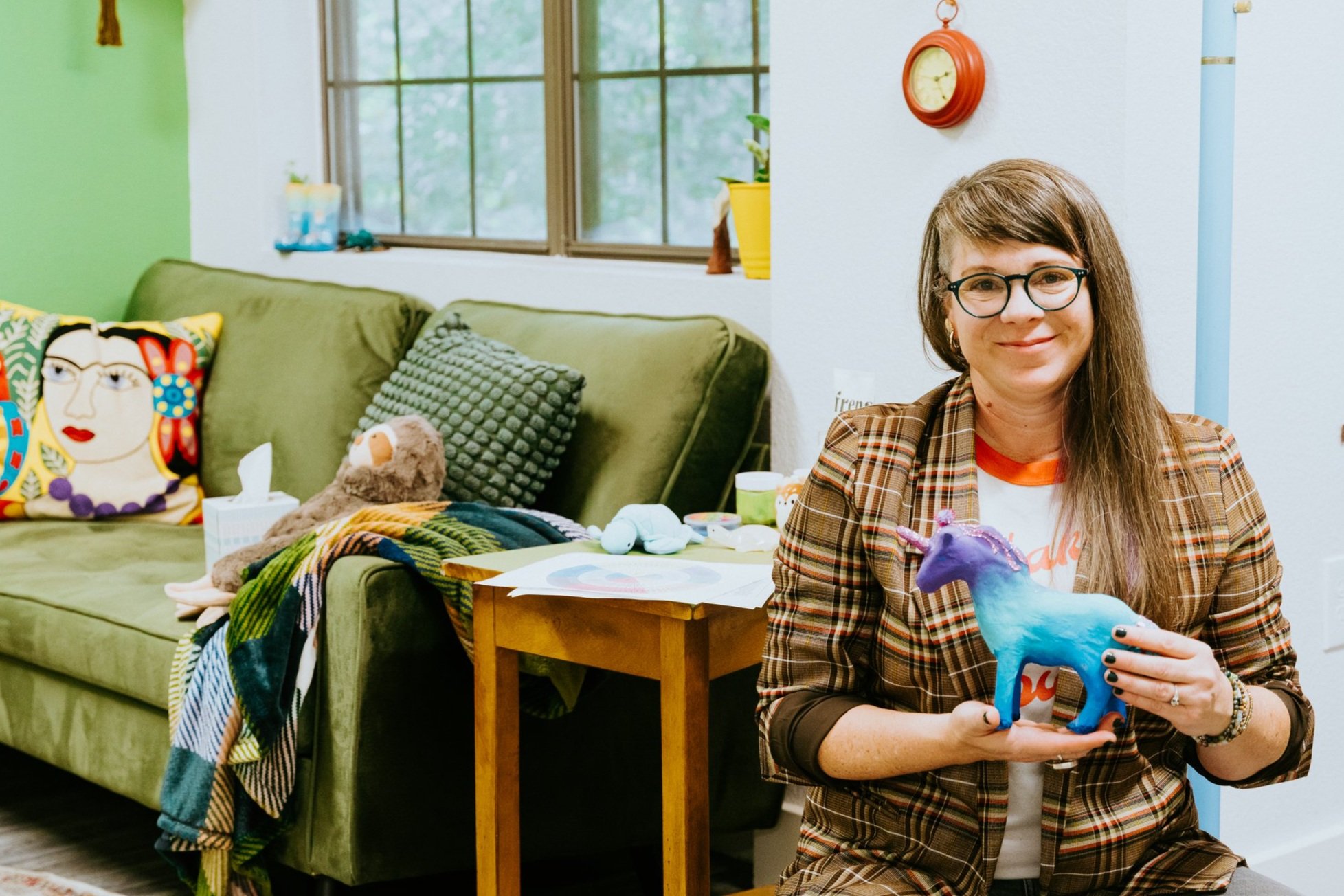Expressive Art Therapy in Arizona
Personalized Intensive Therapy for Teens & Adults
Whether you are processing overwhelming memories, navigating depression, moving through a life transition, or supporting a child who struggles to express themselves, there is a gentle pathway toward healing.
Healing often begins long before words appear. Many children, teens, and adults feel emotions in their bodies before they can explain them.
We all carry trauma, anxiety, or memories that feel too tangled to speak out loud.
At Creative Path Therapy, we understand that talking doesn’t reach into our entire experience, and it isn’t the most effective way to heal. That’s why Expressive Art Therapy, a creative, deeply therapeutic approach, is one of the pillars of our practice.
Our goal is simple: to help you find your path back to yourself with emotional clarity, safety, and connection through creativity and presence. .
Why Creative Path Therapy Is Arizona’s Home for Expressive Arts
Unlike clinics that offer art therapy as a small add-on service, we’ve built an entire therapeutic experience around creativity. Our clients come from Mesa, Chandler, Gilbert, Tempe, Scottsdale, and surrounding communities to work with therapists who specialize in expressive arts and trauma-informed care.
A Dedicated Therapeutic Art Studio
We are one of the few practices in Arizona with a full art studio designed specifically for healing. This space allows clients to work with paint, clay, collage materials, and mixed media in an environment that feels safe, sensory-friendly, and welcoming.
Highly Trained Expressive Arts Therapists
Every therapist at Creative Path Therapy brings additional training in modalities that complement expressive arts, including:
EMDR
DBT
Sand Tray
Sensorimotor Psychotherapy
Play Therapy
IFS
CBT
This combination allows clients not only to express emotions creatively but also to process them through evidence-based methods.
Creative Healing Beyond the Therapy Room
We also offer:
Expressive Art Trauma Recovery Groups
Eco-Therapy groups and individual eco-therapy sessions
Sliding-scale options for groups and individual therapy
Thrizer-friendly payment options
We believe creativity should be accessible, not a luxury.
Who Expressive Art Therapy Supports
Creativity is inherently flexible, making it powerful for a wide range of ages and emotional needs. No experience is needed to begin. You only need the willingness to explore.
Children and Pre-teens
Younger clients often express more through symbols, color, movement, or sensory play than through conversation. Expressive Art Therapy invites development appropriate communication that allows anxiety, fear, confusion, and trauma to be expressed in a way that feels safe.
Teens
Teens benefit from Expressive Art Therapy when navigating identity shifts, peer pressure, emotional intensity, or past trauma. Creativity gives them an outlet that feels freeing and connected rather than confrontational.
Adults
For adults, expressive arts opens the door to deeper insight—especially for those dealing with:
Depression
Anxiety
Trauma and C-PTSD
Grief
Relationship difficulties
Emotional numbness
Dissociation
Chronic overwhelm
Chronic pain
Couples and Families
Creative exercises deepen communication, reduce emotional defensiveness, and help members understand one another in new ways.
LGBTQIA+
We provide affirming, inclusive care for queer individuals and couples, honoring identity and lived experience throughout the creative process.
What We Help You Work Through
Our clients come to us seeking relief, clarity, or support with challenges that often feel heavy or long-standing.
| Emotional Health | Trauma & Safety | Life Situations |
|---|---|---|
| Anxiety & panic | PTSD & C-PTSD | Divorce, breakups, transitions |
| Depression | Childhood trauma | Parenting challenges |
| Low self-worth | Domestic violence history | Identity exploration |
| Emotional numbness | Spiritual trauma | Family conflict |
| Shame, guilt, confusion | Attachment wounds |
LGBTQIA+ stressors Systemic Oppression |


